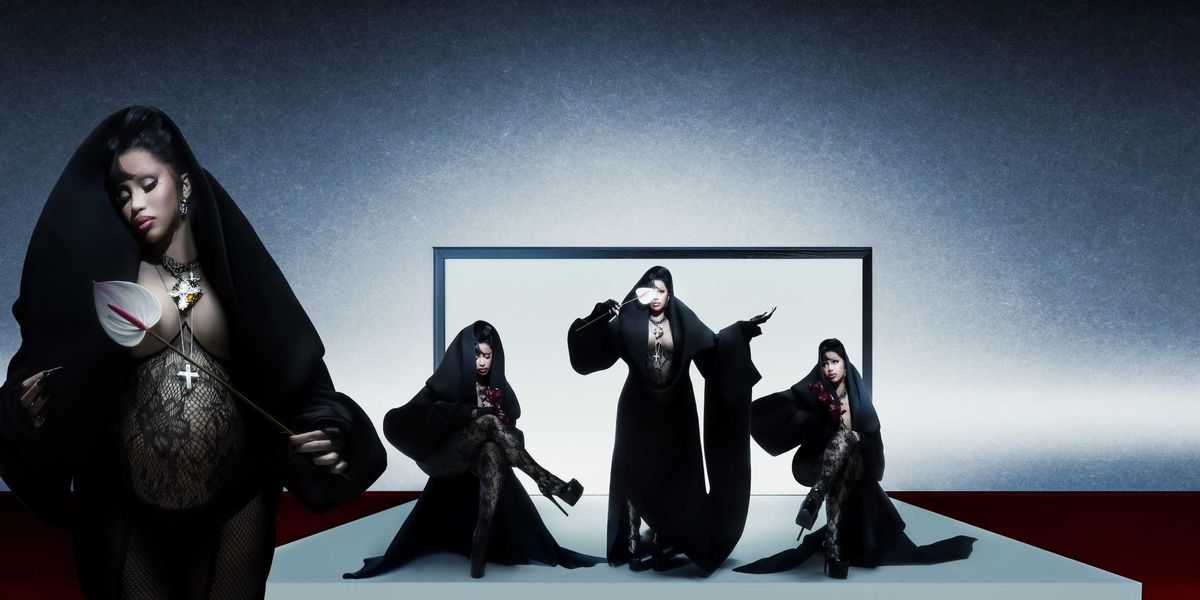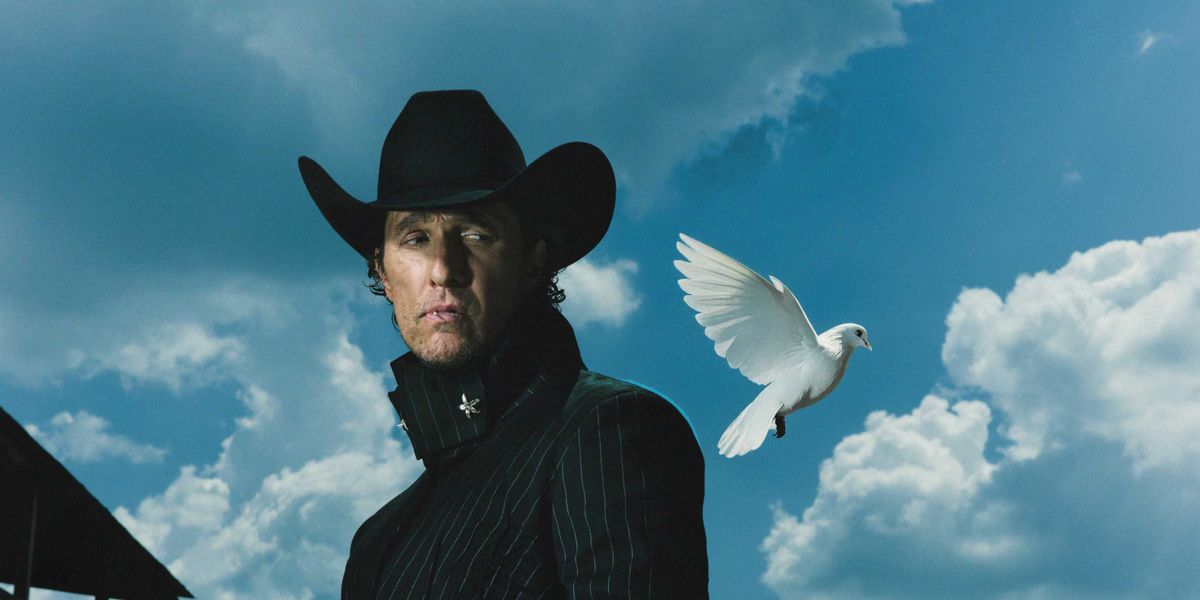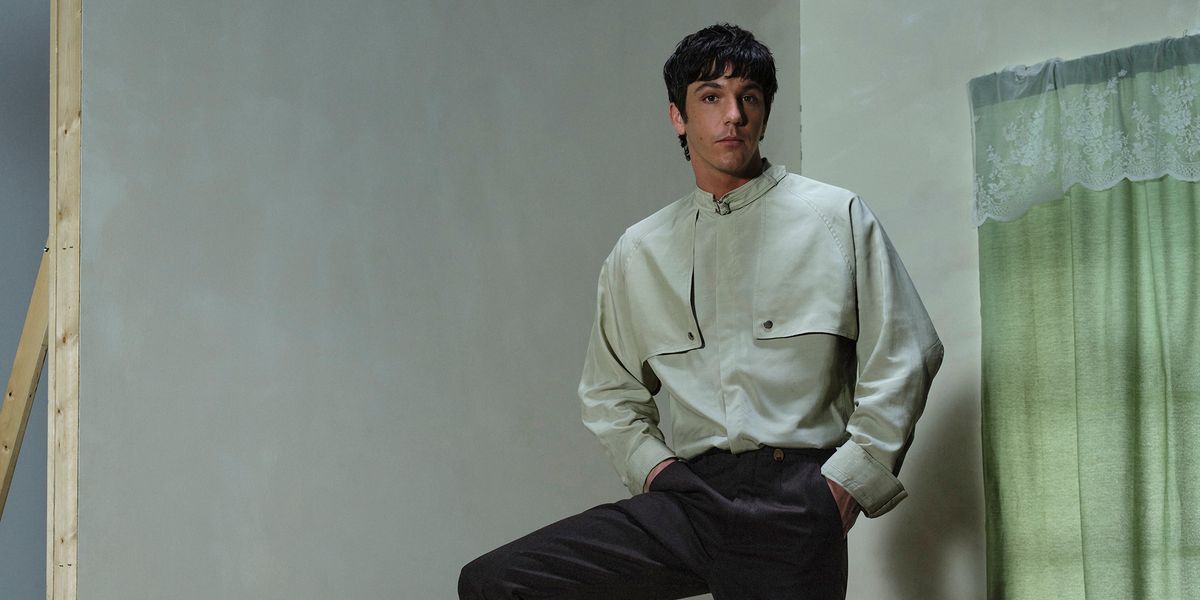
Fashion Club and Jay Som See a 'Ghost'
By Tobias Hess
Oct 22, 2024Fashion Club’s forthcoming album, A Love You Cannot Shake, packs a rare emotional punch. That makes sense given that Pascal Stevenson, the force behind the project, is looking to “deal with a lot of big emotions” on the record, similar to how “music typically [functions] in something like film.” Indeed, each song hits like a film’s climax, a seminal scene where a character's life is changed forever.
A Love You Cannot Shake is all self-produced by Stevenson who chose to lean into her intricate production style on the record, weaving in sonic inspirations from pop, ambient music and “orchestral compositions.” The follow-up to 2022’s Scrutiny (a darker affair, more in the vein of post-punk), A Love You Cannot Shake documents an intensely consequential period in her life shaped by her gender transition and sobriety journey. Each song thus fittingly shifts between states of euphoria, pain, agitation and release, her voice often melding with her own dense, propulsive instrumentation. “I want [my music] to be the kind of music that you’re uncomfortable to put on at your barista job or in the car with someone you don’t know very well because it stops you in your tracks,” Stevenson tells PAPER.
That’s certainly true of “Ghost” featuring Jay Som, released today and premiering on PAPER. The song begins awash in keys and vocal textures before Stevenson’s voice comes in, gentle yet aching: “Feel like I’ve wasted time/ So young with a face just like mine” she sings. Soon after, the drums kick in and the song goes from a quiet ocean to thrashing tides.
“Ghost" is not the first single off the album in which Stevenson enlisted help from a notable colleague. Previous singles like “Forget” featuring Perfume Genius and “Rotten Mind” featuring Julie Byrne have Stevenson teaming up with some of music’s most effective emotional communicators. It makes sense that they'd want to work with Stevenson; few in music today are making music that’s unafraid to deal with such vast feelings.
Stevenson chatted with PAPER about “Ghost,” their exciting new album and their sonic inspirations.
All of A Love You Cannot Shake boasts incredibly intricate production. What was your process in putting it together? Did they start with production or first as songs on an instrument?
A combination of both! For example “Forget” and “Deny” were written on the piano; “Confusion” and “Ice Age” on guitar. But then there were some songs that already had some production elements in place, like “Ghost” or “Faith.” For those songs I would usually reach a point where I would stop working on the instrumental and take the chords to guitar to workshop vocal melodies and lyrics. I just wanted to make sure that even the songs with more elaborate production had strong songwriting at the core.
You've achieved such a massive, cinematic sound on the record. What inspired A Love You Cannot Shake's sonic palette?
The record deals with a lot of big emotions, so I really wanted the sonic palette to line up with that. I think that’s the purpose music typically serves in something like film, or even things like orchestral compositions or opera. There’s this feeling that the dynamics and texture of the music reflect the emotions of the piece. There's a part of it that’s trying to replicate how overwhelming it can feel to hear an orchestra going from these really small single-instrument lines to taking up the full frequency spectrum. Another element in a lot of these songs is this really broken sound that feels like it’s almost struggling to break through. That’s definitely influenced by a lot of modern ambient work, Tim Hecker, Fennesz, etc.
You've shared a playlist of songs that inspired you. You noted, "the reason [some songs] are on there is one second that happens." How would you describe that second that sparks something inside you?
That’s a big question. I get activated really easily when I’m listening to music. I’m someone that cries really often just from feeling an emotion conveyed so intensely through a song. That can be lyrics, melodies, production elements. But if a song is on that playlist it has a moment that made me cry, or made me feel inspired. My only hope for my music is that it garners that kind of intense reaction. I want it to be the kind of music that you’re uncomfortable to put on at your barista job or in the car with someone you don’t know very well because it stops you in your tracks.
"Ghost" features Jay Som, an incredible producer and songwriter in her own right. Tell me about the process of putting this song together with her.
The first time I went to Melina’s studio to talk about her working on a song on the album we just ended up hanging out for like six hours talking about production, touring, and recent musical discoveries. I have so much respect for Melina and think she has such an amazing ear for production and songwriting. She was initially supposed to sing on the song “one day” but she convinced me that it would be more effective with the solo vocal and a bit of rearranging. And she was totally right. So we ended up working out the vocal hook that comes in after the first chorus, and she laid down a harmony on the chorus and those two things really helped finish off that song.
This album is such an exciting leap. Do you have any specific hopes for how the record will exist in the world?
I want people to spend a lot of time with it, picking apart all the intricacies and discovering new elements of the songs that move them. That’s really my hope for the record, that someone out there forms a deep personal connection with it the way I have with records I love. More practically I hope that it reaches like-minded artists and that I have the opportunity for more collaboration.
Photography: Alex Kacha
Related Articles Around the Web
MORE ON PAPER
Music
You Don’t Move Cardi B
Story by Erica Campbell / Photography by Jora Frantzis / Styling by Kollin Carter/ Hair by Tokyo Stylez/ Makeup by Erika LaPearl/ Nails by Coca Nguyen/ Set design by Allegra Peyton
Story by Erica Campbell / Photography by Jora Frantzis / Styling by Kollin Carter/ Hair by Tokyo Stylez/ Makeup by Erika LaPearl/ Nails by Coca Nguyen/ Set design by Allegra Peyton
14 October
Entertainment
Matthew McConaughey Found His Rhythm
Story by Joan Summers / Photography by Greg Swales / Styling by Angelina Cantu / Grooming by Kara Yoshimoto Bua
Story by Joan Summers / Photography by Greg Swales / Styling by Angelina Cantu / Grooming by Kara Yoshimoto Bua
30 September
Music
Demi Lovato Is No Joke
Story by Ivan Guzman / Photography by Jason Renaud / Styling by Chris Horan/ Makeup by Loftjet / Set design by Allegra Peyton
Story by Ivan Guzman / Photography by Jason Renaud / Styling by Chris Horan/ Makeup by Loftjet / Set design by Allegra Peyton
15 September
Music
Role Model Isn’t In Kansas Anymore
Story by Tobias Hess / Photography by Richie Talboy / Styling by Angelina Cantú / Grooming by Jerrod Roberts / Set design by Allegra Peyton
Story by Tobias Hess / Photography by Richie Talboy / Styling by Angelina Cantú / Grooming by Jerrod Roberts / Set design by Allegra Peyton
14 August
Internet
Quen Blackwell Takes Over
Story by Ivan Guzman / Photography by Richie Talboy / Styling by Angelina Cantú / Makeup by Kimora Mulan / Hair by Malcolm Marquez / Nails by Kimmie Kyees / Set design by Allegra Peyton
Story by Ivan Guzman / Photography by Richie Talboy / Styling by Angelina Cantú / Makeup by Kimora Mulan / Hair by Malcolm Marquez / Nails by Kimmie Kyees / Set design by Allegra Peyton
11 August








